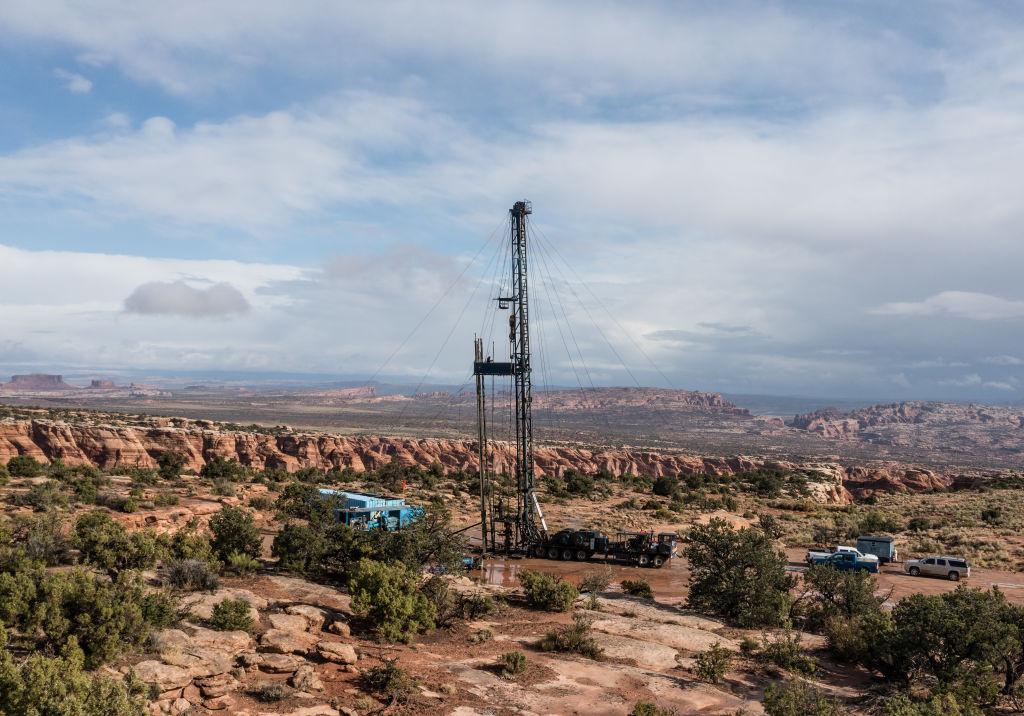The Uinta Basin in northeastern Utah is one of the richest oil shale deposits in the country. It is estimated to hold more proven reserves than all of Saudi Arabia. Enefit, an Estonian company, was the latest in a long line of firms that hoped to tap it.
It’s also the latest to see such plans collapse — but perhaps not yet for good.
The company has lost access to the water it would need to unearth the petroleum and relinquished a federal lease that allowed research and exploration on the land. The two moves, made late last month, appear to signal the end of Enefit’s plans to mine shale oil in the Uinta Basin.
“If they’re getting cut off from this water, it’s kind of the nail in the coffin for this whole project,” said Michael Toll, an attorney for the Grand Canyon Trust, a conservation nonprofit that opposed the project. “Just ensuring that this water won’t be used for oil shale is a major win for the Colorado River Basin.”
Still, the company may develop other assets in the basin. In a written statement, Ryan Clerico, Enefit American Oil’s chief executive officer, said that the company holds “extensive private lands and mineral resources in the Uinta Basin” and that it “is currently evaluating a number of different business cases, including some that are unrelated to oil shale.” The company currently leases its private land for grazing, but it has considered solar, wind, and energy storage projects on it, he said.
“There is no active development or construction on the property, but there are also no definitive or imminent plans to terminate our operations in the U.S.,” Clerico said.
Enefit had over at least the last 15 years secured that federal research and development lease, along with rights to billions of gallons of water and the right of way needed to build the infrastructure for such a massive project. The company hoped to produce 50,000 barrels of oil daily for the next 30 years — almost double the Uinta Basin’s current production.
The environmental and public health consequences of that would have been staggering. The carbon emissions from burning all that oil is equivalent to the emissions of 63 coal plants, and the water required would serve nearly 60,000 homes for a year. As a result, Grand Canyon Trust has for years fought the project by challenging the water rights and suing the Interior Department for improperly granting the rights of way to build a pipeline and transmission corridor on federal land.
Enefit’s plans hinged on the ability to access 10,000 acre-feet, or 3.2 billion gallons, of water from the White River, a tributary of the Green River that flows into the Colorado River. Because Utah is not allocating new water rights, Enefit purchased a water right from a public utility called Deseret Generation and Transmission Cooperative in 2011.
However, Enefit quickly ran afoul of state water laws. Because that resource is scarce in the West, most states, including Utah, require rights holders to “use it or lose it.” Once rights are granted, the recipient must put the H2O to “beneficial use” within a certain time — 50 years, in Utah’s case. Any rights that aren’t exercised in that period revert to the state to prevent water hoarding.
In Enefit’s case, its right was appropriated in 1965 and due to be returned to the state in 2015. The only exception to the 50-year rule is for public utilities. Since Deseret Generation could apply for a 10-year extension, Enefit transferred the right back to Deseret, which then applied for an extension. Once received, Deseret leased the water to Enefit again.
The Grand Canyon Trust claimed the move was illegal and raised the issue with the state Division of Water Rights, which approved the transfer and extension. The trust requested an administrative hearing, which eventually led to a settlement under which Deseret agreed not to use the water for anything other than generating electricity. The agreement, reached late last month, explicitly “prohibits Deseret Power and all other entities or persons from using the water right for fossil fuel mining, extraction, processing, or development.”
“Although the water right is not going to be forfeited, the most important thing for us is that there is a guarantee that this water will not be used for fossil fuel development,” Toll said.
Enefit has also relinquished a 160-acre federal lease for research and development on the land. Last month, it sent a letter to the U.S. Bureau of Land Management, which oversees drilling on public lands, noting that it does not plan to convert the research lease into a commercial lease. The trust’s lawsuits against the Bureau and the U.S. Fish and Wildlife Service are pending in federal court.
“The basin already has some of the least healthy air in the country, and this project would have just made it much, much worse,” said Toll. “It’s a win for the environment. It’s a win for public health.”


